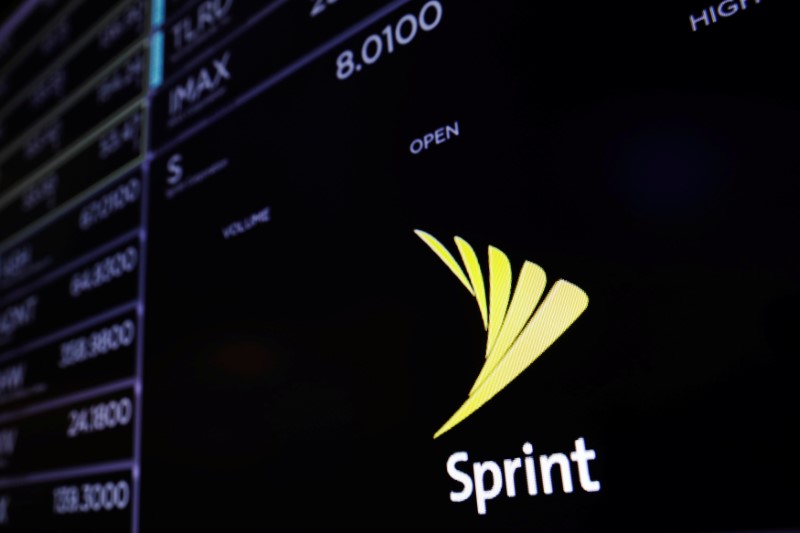(Reuters) - Sprint Corp (N:S) shares jumped as much as 6 percent on Tuesday on news the carrier is in talks with Charter Communications Inc (O:CHTR) and Comcast Corp (O:CMCSA) about a wireless partnership, a move that added a new dimension to speculation about possible telecom sector tie-ups.
Sprint, controlled by Japan's SoftBank Group Corp (T:9984), will put merger talks with T-Mobile US Inc (O:TMUS) on hold as it enters a two-month period of exclusive negotiations over the possible deal with Charter and Comcast, sources told Reuters late on Monday.
The news stoked speculation about the future of the T-Mobile-Sprint tie-up, and also about other potential merger partners for T-Mobile. Analysts have said that the telecoms and cable sectors are primed for a wave of deal activity, and executives have openly talked about potential mergers.
If the talks with Charter and Comcast fail, Sprint's negotiating position could weaken if it were to restart merger talks with T-Mobile, JPMorgan (NYSE:JPM) analysts said.
And if Sprint and T-Mobile merger talks fall apart, that could strengthen the case for a tie-up between T-Mobile and Dish Network Corp (O:DISH), Jefferies analysts said in a note.
T-Mobile's shares fell 3.3 percent on Tuesday to $61.06, while Dish shares were up 0.3 percent at $64.02. Sprint shares were last up 2.7 percent at $8.22.
Analysts have speculated that Dish, a satellite TV provider that has been buying up wireless spectrum, could be an attractive acquisition target for both Verizon and T-Mobile.
Sprint's talks to provide the backbone for a wireless network for Comcast and Charter serve as a "three-way hedge" for the companies, said Craig Moffett, analyst at MoffettNathanson.
"From a game theory perspective, this is a fascinating move," Moffett wrote in an email.
The two cable companies are hedging for a possible tie-up between Sprint and T-Mobile that could reduce their negotiating leverage, and the wireless deal also allows Sprint to hedge against the risk that a merger with T-Mobile never happens, Moffett said.
A wireless deal with Comcast and Charter would also give Sprint more bargaining leverage if it does secure a tie-up with T-Mobile, he added.
The Wall Street Journal, which first reported the negotiations between the companies on Monday, said Charter and Comcast were in preliminary talks to take an equity stake in Sprint as part of an agreement.
A minority equity investment was being discussed but that may not be part of any deal, sources told Reuters.
Charter and Comcast could also look at jointly acquiring Sprint, but that is unlikely, the sources said.
WIRELESS PARTNERSHIPS
Comcast and Charter announced a wireless partnership in May in a bid to offset customer attrition as younger viewers shun high-priced subscriptions in favor of cheaper online options.
Both cable companies already have network-resale or mobile virtual network operator (MVNO) agreements with Verizon Communications Inc (N:VZ).
Comcast also already has an MVNO agreement with Sprint that stems from the cable company's 2008 investment in Clearwire Corp.
A source familiar with the matter said Comcast would seek better terms for that agreement given the highly competitive nature of the wireless business and technological changes in the past nine years.
MVNOs do not own networks, and instead rent capacity from established operators to sell on to their customers, usually at low prices due to their small overheads, with cheap distribution through the internet or convenience stores.
The cable companies' agreement with Verizon restricts them to offer wireless within their own service areas, while a deal with Sprint could allow them to offer the service nationally.

Verizon shares were down 1.6 percent on Tuesday at $44.97.